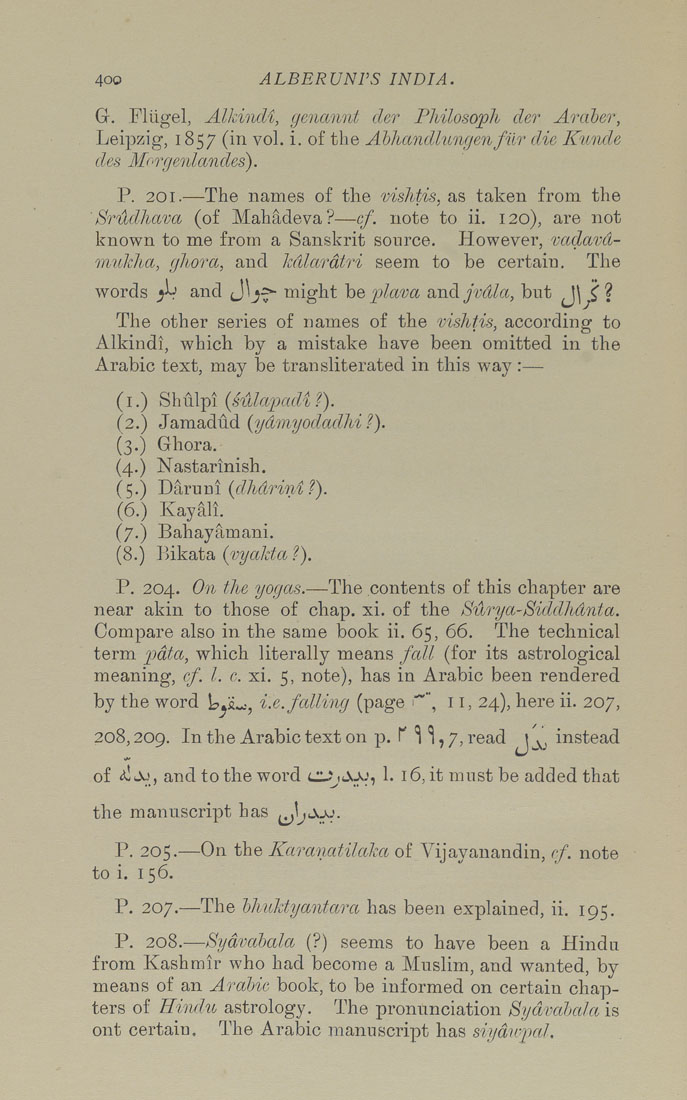400 ALBERUNTS INDIA.
G. Fliigel, Alkindi, genctnnt eler Philosoph der Araber,
Leipzig, 1857 (in vol. i. of the Abhctndlungenfitr die Kunele
des Me-rgenlandes).
P. 201.—The names of the vishtis, as taken from the
SriXdhava (of Mahadeva?—cf. note to ii. 120), are not
known to me from a Sanskrit source. However, vaeiavct-
mukha, ghora, and kdlardtri seem to be certain. The
words _ji^ and Ji^^ might he plava and jvdla, but J\ ? ?
The other series of names of the vishtis, according to
Alkindi, which by a mistake have been omitted in the
Arabic text, may be transliterated in this way:—
(i.) ^hvA^A (siXlctqiaedi'}).
(2.) Jamadud (ydmyoeletelltil).
(3.) Ghora.
(4.) Nastarinish.
(5.) JXvkmni (dhdrini'^).
(6.) Kayali.
(7.) Bahayamani.
(8.) I>ikata (vyctktct.?).
P. 204. On the yogcts.—The contents of this chapter are
near akin to those of chap. xi. of the Surya-Sidelhdnta.
Compare also in the same book ii. 65, 66. The technical
term pdtct, which literally means fall (for its astrological
meaning, cf. I. c. xi. 5, note), has in Arabic been rendered
by the word l^.ij..^, i.e. fettling (page i""", 11, 24), here ii. 207,
208,209. In the Arabic text on p. T '^ *], 7, read \ ^_, instead
of <^ A.!, and to the word c:.^jjkAJ, 1. 16, it must be added that
the manuscript has ^.Ijjuo.
P. 205.—On the Karanatilaka of Vijayanandin, ef. note
to i. 156.
P. 207.—The bhuktyantetra has been explained, ii. 195.
P. 208.—Sydvabala (?) seems to have been a Hindu
from Kashmir who had become a Muslim, and wanted, by
means of an Arctbic book, to be informed on certain chap¬
ters of Hindu astrology. The pronunciation Sydvabeda is
out certain. The Arabic manuscript has siydwpal.
|








